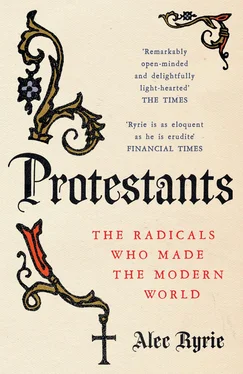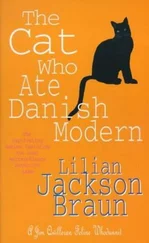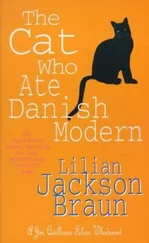Luther was already displaying what would become an enduring feature of Protestantism: a queasy mixture of humility and arrogance. The humility was real. Luther knew that he was the worst of sinners. He begged his followers to call themselves Christians, not “Lutherans”:
What is Luther? The teaching is not mine. Neither was I crucified for anyone. . . . How then should I, poor stinking maggot-fodder that I am, come to have men call the children of Christ by my wretched name?
He denied that his movement’s success was his own doing. In 1522, he gave this account of how it happened:
I simply taught, preached, and wrote God’s Word; otherwise I did nothing. And while I slept, or drank Wittenberg beer with my friends . . . the Word so greatly weakened the papacy that no prince or emperor ever inflicted such losses on it. I did nothing; the Word did everything. 21
Vintage Luther, including the beer. But for all the humility, there are some bold claims here. His teaching is Christ’s teaching, and he writes God’s Word. Increasingly, Luther saw himself not merely as a theologian but as a prophet, called by God to overturn the papacy. For one obscure professor to mobilize an unprecedented mass movement, to defy all the forces of Church and empire, and to feel them crumbling at his touch – this was heady stuff. And yet his confinement had sidelined him. His books still churned out, but there was a dangerous vacuum – especially back in Wittenberg, the eye of the storm.
Wittenberg was by now dominated by Luther’s allies. The most important of them was Philip Melanchthon, acknowledged on all sides to be one of the most brilliant minds of his age. The unpronounceable name is a sign of the times. He was born with the solid German surname of Schwartzerd, but Johannes Reuchlin, who happened to be his great-uncle, suggested he adopt the Renaissance fashion of translating his name into Greek. In 1518, Reuchlin also secured the job of professor of Greek at Wittenberg for his nephew. Luther was immediately in awe of Melanchthon, who, at only twenty-one, was thirteen years his junior. He claimed that he had never written a book as good as Melanchthon’s Commonplaces , published in 1521. It was Melanchthon who fashioned Luther’s vivid, chaotic theological insights into a coherent system. But while the two men were always close, Luther’s faith in his younger colleague was shaken during his confinement in 1521–22. Melanchthon had not kept a grip on Wittenberg. Where Luther was immovably stubborn, Melanchthon was calm and reasonable – to the point, his enemies muttered, of timidity. Luther compared their respective styles by saying that Melanchthon pricked their enemies with pins, while he himself stabbed them with pikes. 22
If Melanchthon was timid, others in Wittenberg had the opposite problem. After Luther’s condemnation at Worms, some of his fellow-travellers began to take matters into their own hands. In September 1521, Luther’s fellow Augustinian monks changed the way they were celebrating the Catholic Mass, the most prominent daily symbol of the theology they now questioned, eventually rewriting the service in German rather than Latin. Some began to abandon their cloisters. In January 1522, the university’s chancellor, Andreas Karlstadt, even got married, in defiance of the long-standing Catholic requirement that clergy remain celibate.
A nervous Elector Frederick called for restraint, but these new radicals were only just beginning. In December 1521, three men from the mining town of Zwickau arrived in Wittenberg: a former student and two weavers. They claimed that God had called them to be prophets, predicted the imminent end of the world, and demanded further dramatic reforms. In particular, they criticized the practice of baptizing infants, which, as they rightly said, has no direct biblical basis. Meanwhile, Karlstadt and his allies were demanding the destruction of Catholic images, altars, and relics in the town’s churches, so as to “cleanse” the buildings of idolatry and fit them for reformed worship. This was controversial in itself, but when the elector forbade it and some of the more excitable townsfolk started smashing images on their own initiative, it looked less like holiness and more like rioting. 23
Luther was horrified. Partly this was because, for all his spiritual radicalism, he was deeply socially conservative. His instinct was to obey rightful authorities, to respect social hierarchies, and to preserve good order. For him, Christian freedom meant inner liberation, not political upheaval. He had defied established authorities, but he was a professor and had in any case been called by God. Self-appointed prophets like the Zwickauers and the iconoclasts had no excuse.
More significantly, Luther hated these impatient reformers’ ideas. He wanted to set Christians free from rules and laws, but Karlstadt and the Zwickauers were burdening Christian consciences with new rules about baptism and images. They had missed the point. Luther wanted not to replace bad laws with good ones but to lift believers above the realm of law altogether, into the light of the Gospel of love. For him, these law-mongers were Schwärmer , “fanatics”. It was a capacious category, which expanded over the coming decades to include almost everyone Luther disagreed with.
So in March 1522, Luther decided to risk returning to Wittenberg to take charge. Symbolically, he arrived in his monk’s habit, shaved and tonsured. For a time, it worked. Karlstadt was reined in and then exiled to an obscure country parish. Luther’s success in whipping his recalcitrant colleagues into line only confirmed his sense of his unique calling.
Yet while Luther could impose order on one town, the wider movement he had sparked was now beyond anyone’s control. The early 1520s in Germany were revolutionary years. Priests, printers, peddlers, even (shockingly) women could all make themselves heard. In a ruthless, scurrilous and almost ungovernable book market, talent rose rapidly to the top. Between 1518 and 1525, fifty-one editions of anti-Catholic works by a Nuremberg shoemaker, Hans Sachs, were published in Germany: not far off Philip Melanchthon’s total of seventy-one. In parts of Germany’s jurisdictional patchwork, reformist preaching and printing were banned, but preachers were hard to keep out, and books almost impossible. Those cities where the reformers found support were confronted with Wittenberg’s dilemma: How was this Reformation actually to be implemented ? By the time Luther himself finally abandoned his monk’s guise, sealed his departure from the vowed life by marrying a former nun, and promulgated a German order for the Mass, he was scrambling to catch up with a splintering, restless, hydra-headed movement, offering a hundred different local Reformations in the name of the same Gospel.
The Fanatics’ Reformation
With hindsight, we can see three broad strands of reform emerging from this chaos. One strand looked directly to Luther, with his appealing blend of spiritual radicalism and social conservatism. The other two strands were less unified. One, rooted in Switzerland and southern Germany, looked primarily to Huldrych Zwingli, the city preacher of Zurich, and several other loosely allied leaders; we will come back to them in chapter 3. The final strand was even more fractious. It lacked shared leaders, origins or doctrines. What united it was a mood, a radically impatient determination to take Luther’s insights about the futility of the old ways and to press them to their extremes. Karlstadt belonged to this radical strand. So too did Thomas Müntzer, a former pastor in Zwickau who became notorious after he was blamed for burning down a shrine to the Virgin Mary in March 1524. That summer, he publicly demanded that the princes of Saxony take up arms on the reformers’ behalf. Luther denounced him as another fanatic.
Читать дальше












